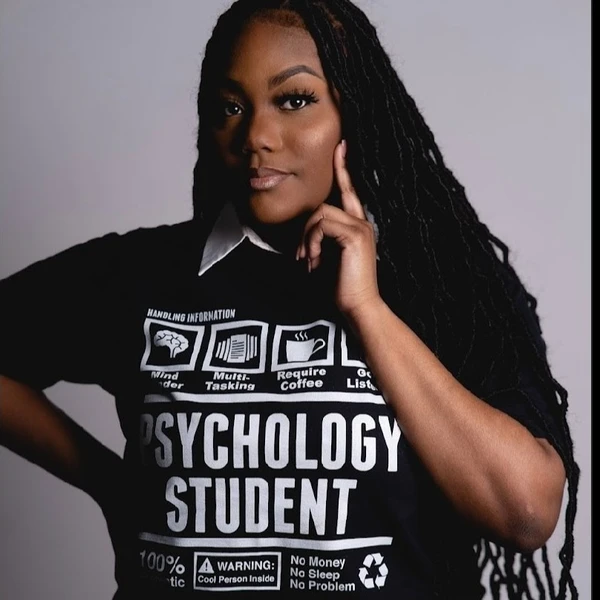
Hobbies and interests
African American Studies
Andrea Robinson
505
Bold Points1x
Finalist
Andrea Robinson
505
Bold Points1x
FinalistBio
I am currently a Junior at the University of Kansas, majoring in psychology with an emphasis of African and African American studies. After graduation, I plan to become a counselor for both children and adults, with a goal of opening my own practice with a focus on trauma-informed, culturally responsive care—particularly for Black and marginalized communities who are often overlooked or underserved.
Education
University of Kansas
Bachelor's degree programMajors:
- Psychology, General
Minors:
- African Languages, Literatures, and Linguistics
Miscellaneous
Desired degree level:
Master's degree program
Graduate schools of interest:
Transfer schools of interest:
Majors of interest:
Career
Dream career field:
Mental Health Care
Dream career goals:
Public services
Volunteering
Zeta Phi Beta Sorority, Incorportated — member2023 – Present
David L. Burns Memorial Scholarship
Addiction is a disease—just as deadly and destructive as cancer—but unlike cancer, it rarely receives the same compassion, understanding, or care. People see addiction and assume weakness, selfishness, or failure. They don’t see the trauma, the pain, or the reason behind the behavior. That stigma is the hardest part.
My desire to help those struggling with addiction comes from a deep personal place. During the COVID-19 pandemic, I witnessed firsthand how the mental health crisis intensified. People lost their jobs, their routines, and their sense of safety—and for many, including my maternal aunt, that loss led to deeper struggles with substance use. Out of 8.2 billion people in the world, this addiction destroyed the youthfulness in her eyes, stealing her passion, peace, and joy.
A federal judge once called her “a menace to society,” but I know she’s more than that. She’s a mother, a daughter, an aunt, and a tenacious woman fighting a disease. Her addiction didn’t come from a lack of self-control—it came from unhealed childhood trauma. Research and studies show that there is a robust correlation in the scientific literature between trauma and addiction. Whatever the addiction is, it serves a purpose i.e. helping a person deal with the present circumstance that they need to find a way to quiet their mind and find a chemical or physical dependence, allowing them to deal with these circumstances.
I believe the key to overcome an addiction is to: find what purpose the addiction is solving and how it can be replaced with something life affirming. For my aunt, childhood trauma is the root of this disease. To truly help someone heal, we must first understand why they are using. Addiction always serves a purpose—whether it’s to numb, to forget, or to survive; that is the abyss of addiction.
And that belief is the foundation of my purpose. Since 2020, I’ve been committed to pursuing a career in the mental health field. I’m currently earning my degree in Psychology with an emphasis in African and African American Studies at the University of Kansas. After graduation, I plan to become a counselor for both children and adults, with a goal of opening my own practice with a focus on trauma-informed, culturally responsive care—particularly for Black and marginalized communities who are often overlooked or underserved.
In my career, I want to help people identify the roots of their addiction, understand the purpose it serves, and find healthier, life-affirming ways to cope with them. I want to create safe, judgment-free spaces where people can be seen as human beings—not to be defined by their worst moments. Supporting someone through addiction is painful and complex, but that’s when they need love the most. Healing doesn’t come from punishment or shame—it comes from understanding, connection, and care.
This work matters to me because I’ve lived it. I’ve felt the heartbreak of watching someone I love to be consumed by addiction. But I’ve also seen her strength, her resilience, and her humanity. That’s why I want to dedicate my life to helping others reclaim their light—and remind them that they are never beyond saving.
Reference: National Institute of Mental Health. (n.d.). COVID-19 and Mental Health. National Institutes of Health.